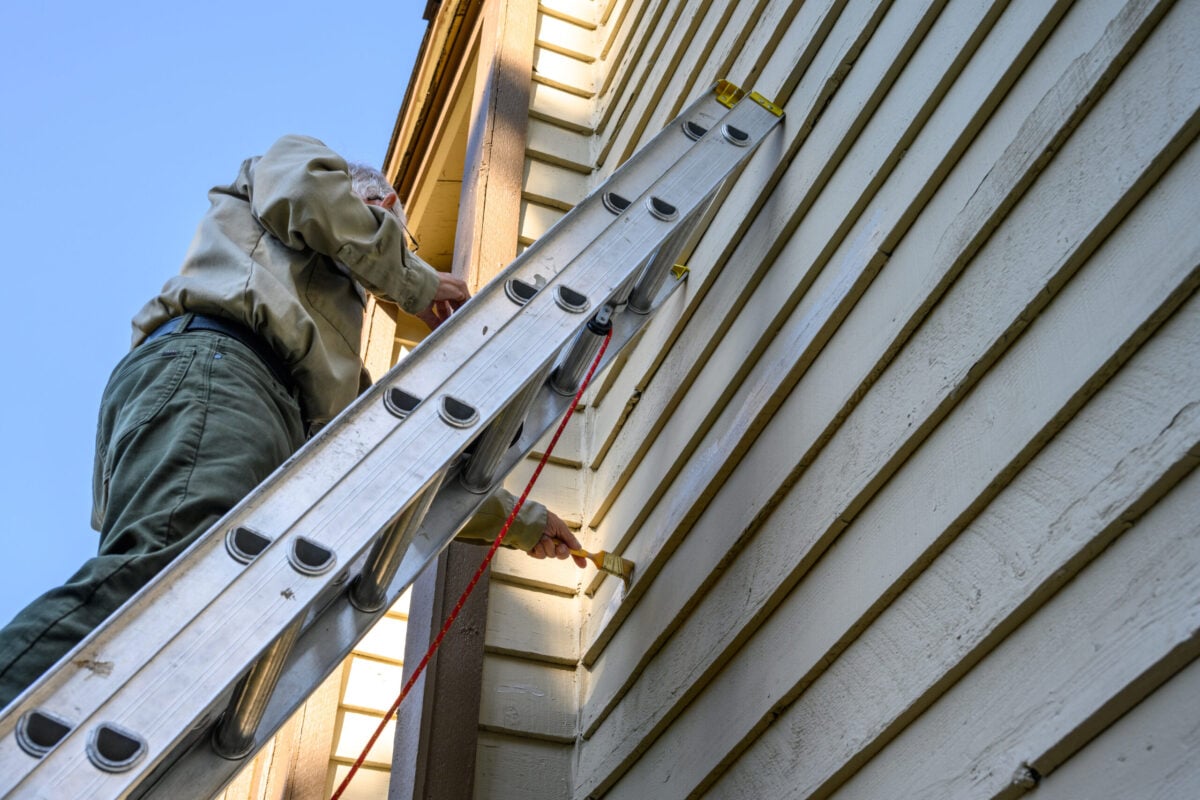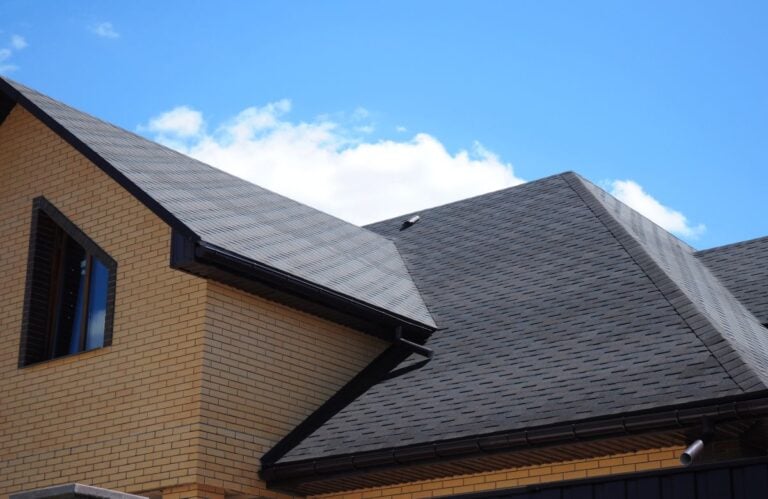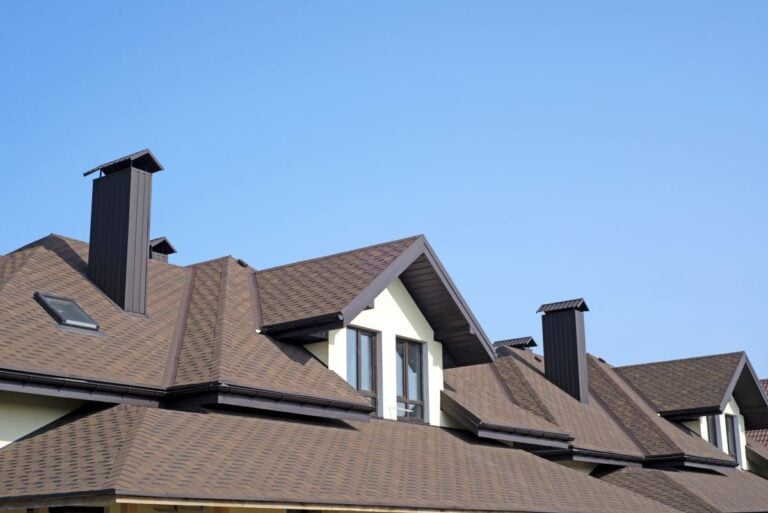Vinyl siding is a popular choice for homeowners across Northern Virginia, but what happens when you want to change its color or refresh its appearance? Many homeowners wonder, “Can you paint vinyl siding?” and the good news is that it absolutely is. However, there are important considerations and techniques you’ll need to understand before starting your project.
This comprehensive guide will walk you through everything you need to know about painting vinyl siding, from determining if it’s the right choice for your home to selecting the best materials and techniques for a professional-looking finish. We’ll also explore when you might want to consider alternatives like siding replacement instead.
We’ll cover:
- Why paint vinyl siding?
- Essential preparation steps
- 7 essential tips for painting vinyl siding
- Paint selection and materials
- Maintenance after painting
🤔 Why Paint Vinyl Siding?
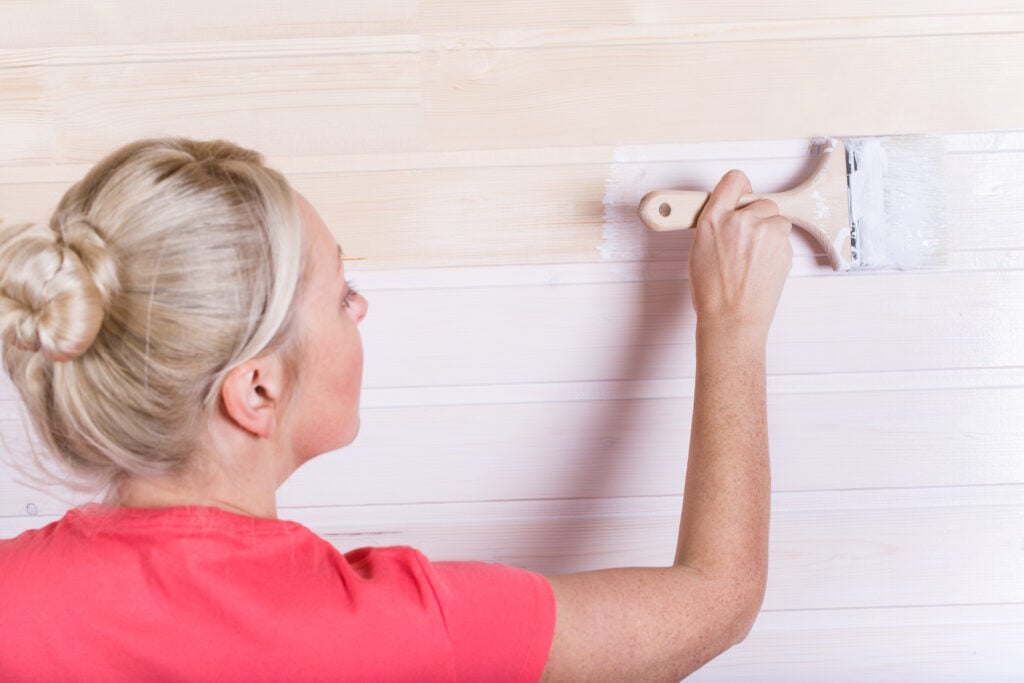
There are several compelling reasons why homeowners choose to paint their vinyl siding rather than replace it entirely.
- Cost-Effective Upgrade: Painting vinyl siding is much cheaper than replacing it, costing $1,500 to $4,000 for an average home compared to thousands for new siding.
- Color Options: Unlike the limited colors of vinyl siding, painting gives you endless choices to match trends, landscaping, or your personal style.
- Extended Durability: A quality paint job protects siding from UV damage and weather, extending its lifespan by several years.
✅ Essential Preparation Steps
Proper preparation is crucial for a successful vinyl siding paint job. Rushing through preparation will result in poor adhesion and a finish that won’t last.
Thorough Cleaning
Start by power washing your entire home to remove dirt, mildew, and chalky residue. Use a cleaning solution specifically designed for vinyl siding, and allow the siding to dry completely before proceeding. This step is critical because paint won’t adhere properly to dirty or contaminated surfaces.
Surface Inspection and Repairs
Walk around your home and inspect every panel for damage. Look for loose sections, cracks, or areas where caulking has failed. Make all necessary repairs before painting, as these issues will only worsen over time if left unaddressed.
Primer Selection
Most vinyl siding will require a high-quality primer designed specifically for vinyl or other non-porous surfaces. This primer creates the foundation for your paint to adhere properly and ensures even color coverage.
💡 7 Essential Tips for Painting Vinyl Siding
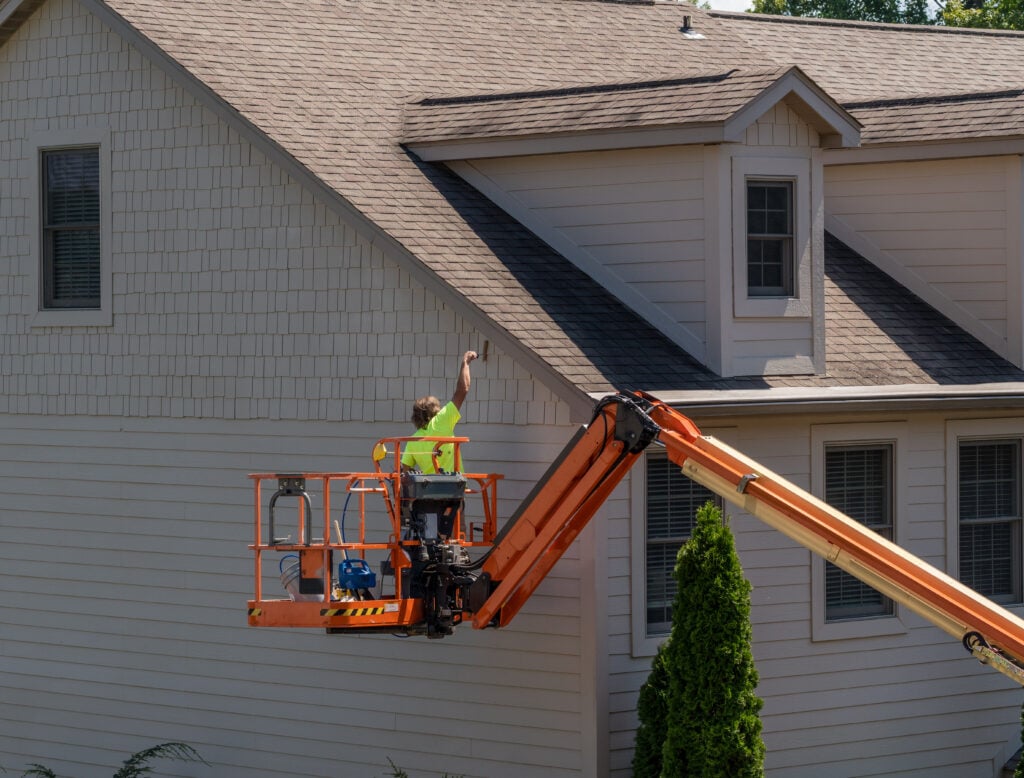
Painting vinyl siding can extend its lifespan and give your home a fresh, updated look without costly replacements. Knowing the right techniques ensures a durable, professional finish that won’t peel or crack over time.
1. Choose the Right Paint Type
When painting vinyl siding, selecting the correct paint is crucial to ensure durability and a professional finish. Use only high-quality acrylic latex paint specifically formulated for vinyl siding. These paints are designed to flex with the natural expansion and contraction of vinyl, which occurs due to temperature changes. Without this flexibility, the paint could crack, peel, or fail prematurely. Avoid using oil-based paints, as they tend to become brittle over time and are not compatible with vinyl siding. By investing in the right paint, you’ll ensure your siding looks great and stays protected for years to come.
2. Select Appropriate Colors
Color choice is more than just an aesthetic decision when it comes to vinyl siding. Choose colors that are the same shade or lighter than your current siding because dark colors absorb more heat from sunlight. This excessive heat absorption can lead to warping, buckling, or even permanent damage to the vinyl. Light colors, on the other hand, reflect heat and help maintain the structural integrity of your siding. Additionally, lighter shades are often more forgiving in terms of hiding imperfections or uneven application, making them ideal for a clean, polished appearance. Always test your chosen color in a small area before committing to the entire surface.
3. Work in Optimal Weather Conditions
Painting in the right weather conditions is essential for achieving a smooth and long-lasting finish. Aim to paint when outdoor temperatures range between 50-80°F, as extreme heat or cold can interfere with paint application and drying. High humidity can also cause issues, such as poor adhesion or extended drying times, which can compromise the final result. Direct sunlight can cause the paint to dry too quickly, leading to visible brush strokes or uneven coverage. Plan your project during mild, dry weather and work on shaded areas of the siding to ensure consistent and professional results.
4. Use Quality Tools
The tools you use can significantly impact the quality of your paint job. Invest in high-quality brushes and rollers that are designed for exterior painting, as they provide better coverage and a smoother finish compared to cheaper tools. Look for brushes with synthetic bristles, which are well-suited for applying acrylic latex paint. For large areas, consider using a paint sprayer for quicker application, but be prepared to back-brush or back-roll to ensure the paint adheres properly to the surface. Using the right tools not only makes the job easier but also results in a more professional and durable finish.
5. Apply Thin, Even Coats
When painting vinyl siding, patience is key. Instead of applying a single thick coat, use multiple thin coats for better coverage and durability. Thick coats are more likely to drip, pool, or dry unevenly, which can lead to an unattractive finish and potential peeling over time. Allow each coat to dry completely before adding the next layer. Drying times will vary depending on the weather, so be sure to follow the paint manufacturer’s recommendations. Taking the time to apply thin, even layers will result in a smoother, more professional-looking finish that stands up to the elements.
6. Paint in the Right Direction
The direction in which you paint can influence the overall appearance of your project. Always paint in the direction of the siding—horizontally for horizontal siding and vertically for vertical siding. This technique helps minimize visible brush or roller marks and ensures a more uniform finish that blends seamlessly with the natural texture of the siding. Painting in the correct direction also allows the paint to settle evenly into the grooves and contours of the vinyl, creating a polished, professional appearance. Take your time and follow the siding’s lines for the best results.
7. Don’t Skip the Primer
Even if you’re using a paint that claims to be “paint-and-primer-in-one,” it’s best to apply a separate primer before painting vinyl siding. Primer creates a smooth, even surface for the paint to adhere to and enhances the overall durability of the finish. It also helps the paint bond more effectively to the vinyl, reducing the risk of peeling or flaking over time. Using a high-quality primer is especially important if you’re changing the color of your siding or if the existing surface is weathered or damaged. Taking this extra step will ensure that your paint job looks better and lasts longer.
🎨 Paint Selection and Materials
Choosing the right paint and materials is crucial for achieving a durable and professional finish. The right selection ensures your project meets aesthetic and functional needs while saving time and costs in the long run.
Best Paint Types for Vinyl Siding
Acrylic latex paints are the gold standard for vinyl siding projects. These paints offer excellent adhesion, flexibility, and weather resistance. Look for paints specifically labeled as suitable for vinyl or containing vinyl-safe technology.
Color Considerations
Light and medium colors work best on vinyl siding. White, cream, light gray, and pale blue are popular choices that won’t cause heat-related damage. If you prefer darker colors, look for specially formulated vinyl-safe dark paints that include heat-reflective properties.
Additional Materials Needed
You’ll need high-quality brushes, rollers, drop cloths, painter’s tape, cleaning supplies, and possibly a power washer. Don’t forget safety equipment like ladders, safety harnesses, and protective eyewear.
🛠️ Maintenance After Painting

Proper maintenance after painting ensures the longevity and appearance of your paint job. Regular cleaning and touch-ups can prevent damage and keep surfaces looking fresh over time.
Regular Cleaning
Clean your painted vinyl siding annually with mild soap and water to remove dirt and prevent mildew growth. Avoid harsh chemicals or abrasive cleaning methods that could damage the paint finish.
Touch-Up Maintenance
Inspect your painted siding regularly for small chips or scratches. Address these issues promptly with touch-up paint to prevent moisture infiltration and larger problems.
Expected Lifespan
With proper preparation and high-quality materials, painted vinyl siding can last 7-10 years before requiring repainting. Factors like climate, color choice, and maintenance will affect this timeline.
👨🔧 Trust the Experts at Roof Troopers for Your Siding Needs
At Roof Troopers, we know that your home is your biggest investment, and maintaining its exterior is key to preserving its value and curb appeal. Whether you’re considering painting your vinyl siding or exploring replacement options, our team is here to provide expert advice tailored to your needs.
With years of experience serving Northern Virginia homeowners, we pride ourselves on quality craftsmanship, honest communication, and solutions that stand the test of time. Ready to enhance your home’s exterior? Contact Roof Troopers today for a free consultation and let us help you make the best decision for your siding needs!
Don’t pay for your roof until 2027!
0% APR, same as cash for 24 months
Get Started Today!
"*" indicates required fields


